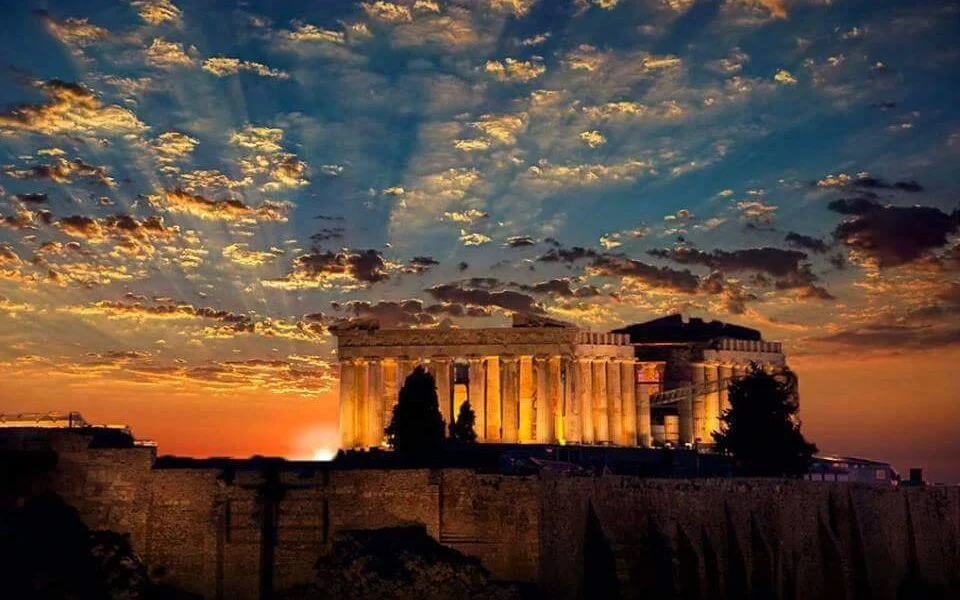The Etymology of Hellas
- Angeliki Gratsia
- Apr 19, 2022
- 3 min read

The name “Εllas or Hellas” etymologically with some references from ancient Greeks and modern historians and philosophers.
The name “Εllas or Hellas” etymologically seems to come from the composition of the words “eos, a, o (ours, he, himself, etc.) and “laos” – That is, Εllas – Ellines = our laos = our people, the same with us, the beings of the same organic matter, of the same clay.
b) There is another report mentioned by Apollodorus who says that Deukalion and Pyrra, throwing back the “laas” ( = the stones, inorganic beings) became “laos” (= the people, the organic beings), became men as many stones as Deucalion threw and women as many stones as Pyrra threw, so metaphorically from the “laas” they were called “laoi peoples”
c) Hesiod (Excerpt 63 = verse 234 and excerpt 102) states that “The Leleges lived in the steep Pidasos, near Satnioenda with their king Alti and father of Laotho”, as well as that: “Lokros became the leader of the people of Lelegon, the one who once Zeus who has incorruptible wisdom, gave selected stones from the earth to Deucalion.
Therefore Hesiod implies – etymologises the names “Lao-thoi”, Ellines or Ellenes and “Lele-ges” from lalo-leo ( = I speak or move, etc.), hence the subject la-of the words laos or λεώς (they speak – they move, the instrumental body), but also the συν-λαλώ> rally, συν-λά (ν) ιος> συλλανιος, εν-λάνιος> ελλάνιος = Ellanios -Ελλάς = Ellas or Hellas, παν-λάνιος = Panellanios –Παλλάς = Pallas etc.
d) Some (Wilamowitz and others) say that Aristotle mentions that the name El-las and Ellines or Ellenes came from the name “Selloi or Elloi> (S) Ellines or Ellenes”, which was the name of a tribe of Epirus.

Aristotle states precisely on the one hand that during the time of Deucalion there was a flood that deformed many areas, such as, that of Mycenae which from arable became barren and that of Argos which from barren became arable and on the other hand that after this flood, which was centered on Dodoni of Epirus where the so-called Selloi or Elloi lived ( = tribe of the Greeks=Graikoi or Pelasgians, Hesiod mentions), the so-called Greeks=Graikoi until then were also renamed Ellines or Ellenes, cf. the flood of Deucalion).
Αncient text: And this about ancient Greece. This is about Dodon and Acheloon. So many times the current changed. The Selloi are here and the so-called Greeks then, now Εllines d ‘”. (Aristotle Meteorological 1 352 a).

Similarly, Homer in the Iliad (c. 233-235) says that the Selloi or Elloi live in Dodoni, but without calling them “Ellines” or calling only their country “Ellas”: = “Zeus king Dodonaeus, Pelasgian, that you sit far away and protect Dodoni with the heavy winter, and around it the Selloi or Elloi live, the interpreters of your oracles who sleep on the ground and have anipta legs = Note:«… according to an ancient religious custom they did not wash their feet and slept down on the ground, to be in constant contact with the earth, from where they drew their divination power, the ability to explain the divine messages .. “, Notes Professor Dakaris.”.
The Selloi or Elloi were a “Homeric tribe”, which “… transmitted from Epirus through the passages of Pindos gave the southern part of the Balkans the name Hellas and the inhabitants the name Ellines – or Ellenes …” according to with K. Faltaic.
According to Evl. Kurila “.. .the word is related to the selas-selas (light), and according to them Ellines or Ellenes (s.s. that is, the Selloi or Elloi) are the bright, the brilliant and the glorious …”.
By Ancient Ellenic Civilization




Comments